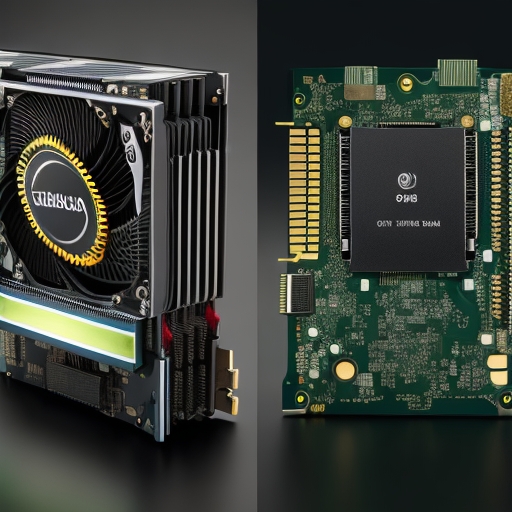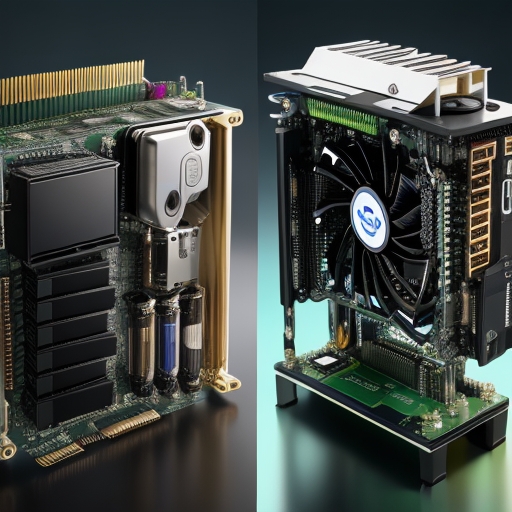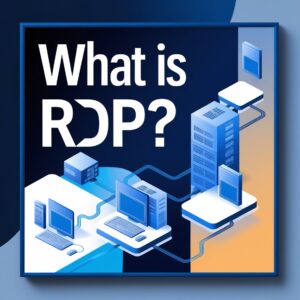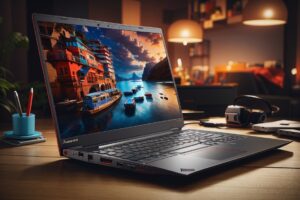
gpu vs cpu
Introduction
In the world of computing, two essential components play a vital role in processing data and performing tasks – the Central Processing Unit (CPU) and the Graphics Processing Unit (GPU). These two technologies have distinct functions and characteristics that make them suitable for different applications. Understanding the differences between GPU and CPU is essential for optimizing system performance and choosing the right hardware for specific tasks.
Understanding GPU and CPU
Before delving into their differences, let’s take a closer look at what a GPU and a CPU actually are.
The Role of GPU
A Graphics Processing Unit (GPU) is a specialized electronic circuit designed to accelerate the rendering of images, videos, and animations. GPUs are primarily known for their role in handling graphics-related tasks, but they are much more than that.
Graphics Processing
The primary function of a GPU is to process and render visual data. Whether it’s rendering lifelike gaming environments, high-definition videos, or complex 3D models, the GPU excels in handling intricate visual calculations.
Parallel Processing
GPUs are optimized for parallel processing, allowing them to perform multiple tasks simultaneously. This parallel architecture is particularly advantageous for tasks that involve heavy data processing, such as machine learning and scientific simulations.
Complex Calculations
Due to their massive number of cores, GPUs can perform complex mathematical calculations rapidly. This ability makes them invaluable in scientific research, artificial intelligence, and cryptocurrency mining.
The Role of CPU
On the other hand, a Central Processing Unit (CPU) is the primary brain of a computer system. It performs general-purpose tasks and handles essential computations needed to operate the system effectively.

General Processing
The CPU is responsible for executing a wide range of tasks, from basic arithmetic operations to complex logical calculations. It handles tasks that require sequential processing and cannot be efficiently parallelized.
Sequential Processing
Unlike GPUs, CPUs excel in sequential processing, where tasks need to be executed one after another. This characteristic makes them suitable for handling everyday computing tasks and operating systems.
Multitasking
CPUs are designed to handle multiple tasks simultaneously by rapidly switching between them. This multitasking ability is crucial for running applications, managing background processes, and ensuring smooth user experiences.
Differences Between GPU and CPU
Now that we understand the primary roles of GPU and CPU, let’s explore their key differences in more detail.
Architecture
The fundamental architecture of GPUs and CPUs differs significantly. GPUs are built with a focus on parallelism, incorporating thousands of cores that work together to process data simultaneously. In contrast, CPUs usually have fewer cores and prioritize sequential processing, making them ideal for tasks that cannot be efficiently parallelized.
Instruction Sets
GPUs and CPUs understand different instruction sets. GPUs are optimized for handling repetitive and straightforward tasks performed in graphics rendering and parallel processing. CPUs, on the other hand, are designed to handle a broader range of complex instructions required for general computing tasks.

Cores and Threads
The number of cores and threads is another key difference between GPUs and CPUs. GPUs tend to have a much higher core count, allowing them to perform a massive number of simple operations in parallel. CPUs typically have fewer cores but may support multi-threading, which enables them to handle multiple tasks simultaneously.
Memory
GPUs and CPUs also have different memory configurations. GPUs often have their own dedicated video memory (VRAM) to store graphics-related data efficiently. CPUs, on the other hand, rely on system memory (RAM) to store both instructions and data.
Use Cases for GPU and CPU
Understanding the differences between GPU and CPU is crucial for choosing the right hardware for specific tasks. Let’s explore some common use cases for both components.
GPU Use Cases
- Gaming: GPUs are essential for delivering immersive gaming experiences with realistic graphics and high frame rates.
- Video Editing and Rendering: GPU acceleration significantly speeds up video editing and rendering processes, reducing waiting times.
- Data Science and Machine Learning: The parallel processing capabilities of GPUs are well-suited for training complex machine learning models and processing large datasets.
- Cryptocurrency Mining: GPUs are popular choices for mining cryptocurrencies due to their ability to perform repetitive hashing operations efficiently.
CPU Use Cases
- General Computing: CPUs are indispensable for everyday computing tasks, such as web browsing, word processing, and email.
- Operating Systems: The CPU is the backbone of the operating system, handling various system processes and user interactions.
- Productivity Applications: CPUs handle tasks in productivity software like spreadsheets, presentations, and databases.
- Web Servers: CPUs power web servers, handling requests and delivering content to users.
Performance Comparison
When comparing GPU and CPU performance, several factors come into play.
Benchmarking
Benchmarking tests can help evaluate the raw computational power of GPUs and CPUs. GPU benchmarks often focus on graphics rendering, while CPU benchmarks measure general computing performance.
Real-world Applications
Performance in real-world applications may vary based on the tasks at hand. Some applications are optimized to leverage the parallel processing power of GPUs, while others rely more on the CPU’s sequential processing capabilities.
Power Efficiency and Thermal Management
Power efficiency and thermal management are crucial considerations, especially in modern computing systems.
Integration in Modern Systems
Modern systems often incorporate both GPUs and CPUs to leverage their individual strengths effectively.
The Future of GPU and CPU
As technology continues to evolve, the roles of GPUs and CPUs are likely to evolve as well. The demand for faster graphics rendering and parallel processing may drive further innovations in GPU technology, while CPUs may continue to focus on enhancing single-core performance and power efficiency.
Conclusion
In conclusion, GPUs and CPUs are integral components of computing systems, each with its unique strengths and applications. Understanding their differences and use cases allows users to make informed decisions when choosing the right hardware for their specific needs.
FAQs
- Q: Can I use a GPU for general computing tasks? A: While GPUs excel in parallel processing, they may not always be the most efficient choice for general computing tasks. CPUs remain better suited for everyday computing needs.
- Q: Are GPUs necessary for casual gaming? A: For casual gaming and basic graphics needs, integrated graphics found in most modern CPUs are often sufficient. Dedicated GPUs are recommended for more demanding gaming experiences.
- Q: Can a GPU replace a CPU? A: No, GPUs and CPUs have distinct roles, and they complement each other in a computing system. They are not interchangeable.





